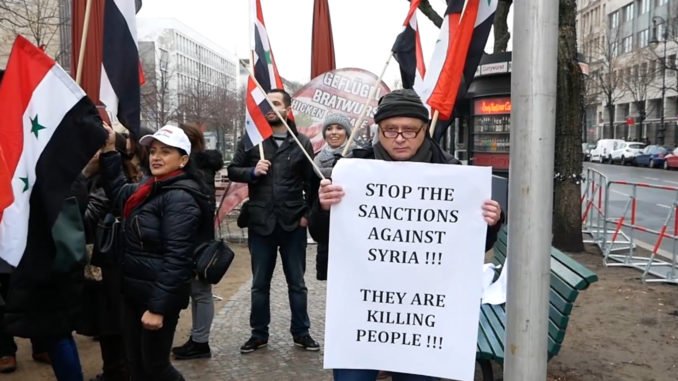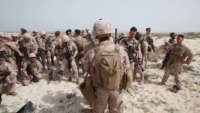The deaths of at least 27 people who drowned as they tried to cross the Channel in an inflatable dinghy in search of asylum have quickly been overshadowed by a diplomatic row engulfing Britain and France.
As European states struggle to shut their borders to refugees, the two countries are in a war of words over who is responsible for stopping the growing number of small boats trying to reach British shores. Britain has demanded the right to patrol French waters and station border police on French territory, suggesting that France is not up to the job. The French government, meanwhile, has blamed the UK for serving as a magnet for illegal workers by failing to regulate its labour market.
European leaders are desperate for quick answers. French President Emmanuel Macron called an emergency meeting of regional leaders a week ago to address the “migration” crisis, though Britain’s home secretary, Priti Patel, was disinvited.
Britain’s post-Brexit government is readier to act unilaterally. It has been intensifying its “hostile environment” policy towards asylum seekers. That includes plans to drive back small boats crossing the Channel, in violation of maritime and international law, and to “offshore” refugees in remote detention camps in places such as Ascension Island in the mid-Atlantic. UK legislation is also being drafted to help deport refugees and prosecute those who aid them, in breach of its commitments under the 1951 Refugee Convention.
Not surprisingly, anti-immigration parties are on the rise across Europe, as governments question the legitimacy of most of those arriving in the region, calling them variously “illegal immigrants”, “invaders” and “economic migrants”.
The terminology is not only meant to dehumanise those seeking refuge. It is also designed to obscure the West’s responsibility for creating the very conditions that have driven these people from their homes and on to a perilous journey towards a new life.
Power projection
In recent years, more than 20,000 refugees are estimated to have died crossing the Mediterranean in small boats to reach Europe, including at least 1,300 so far this year. Only a few of these deaths have been given a face – most notably Aylan Kurdi, a Syrian toddler whose body washed up on the Turkish coast in 2015 after he and others in his family drowned on a small boat trying to get to Europe.
The numbers trying to reach the UK across the Channel, though smaller, are rising too – as are the deaths. The 27 people who drowned two weeks ago were the single largest loss of life from a Channel crossing since agencies began keeping records seven years ago. Barely noted by the media was the fact that the only two survivors separately said British and French coastguards ignored their phone calls for help as their boat began to sink.
But no European leader appears ready to address the deeper reasons for the waves of refugees arriving on Europe’s shores – or the West’s role in causing the “migration crisis”.
The 17 men, seven women, including one who was pregnant, and three children who died were reportedly mostly from Iraq. Others trying to reach Europe are predominantly from Iran, Syria, Afghanistan, Yemen and parts of North Africa.
That is not accidental. There is probably nowhere the legacy of western meddling – directly and indirectly – has been felt more acutely than the resource-rich Middle East.
The roots of this can be traced back more than a century, when Britain, France and other European powers carved up, ruled and plundered the region as part of a colonial project to enrich themselves, especially through the control of oil.
They pursued strategies of divide and rule to accentuate ethnic tensions and delay local pressure for nation-building and independence. The colonisers also intentionally starved Middle Eastern states of the institutions needed to govern after independence.
The truth is, however, that Europe never really left the region, and was soon joined by the United States, the new global superpower, to keep rivals such as the Soviet Union and China at bay. They propped up corrupt dictators and intervened to make sure favoured allies stayed put. Oil was too rich a prize to be abandoned to local control.
Brutal policies
After the fall of the Soviet Union three decades ago, the Middle East was once again torn apart by western interference – this time masquerading as “humanitarianism”.
The US has led sanctions regimes, “shock and awe” air strikes, invasions and occupations that devastated states independent of western control, such as Iraq, Libya and Syria. They may have been held together by dictators, but these states – until they were broken apart – provided some of the best education, healthcare and welfare services in the region.
The brutality of western policies, even before the region’s strongmen were toppled, was trumpeted by figures such as Madeleine Albright, former US President Bill Clinton’s secretary of state. In 1996, when asked about economic sanctions that by then were estimated to have killed half a million Iraqi children in a failed bid to remove Saddam Hussein, she responded: “We think the price is worth it.”
Groups such as al-Qaeda and the so-called Islamic State quickly moved in to fill the void that was left after the West laid waste to the economic and social infrastructure associated with these authoritarian governments. They brought their own kind of occupation, fragmenting, oppressing and weakening these societies, and providing additional pretexts for meddling, either directly by the West or through local clients, such as Saudi Arabia.
States in the region that so far have managed to withstand this western “slash and burn” policy, or have ousted their occupiers – such as Iran and Afghanistan – continue to suffer from crippling, punitive sanctions imposed by the US and Europe. Notably, Afghanistan has emerged from its two-decade, US-led occupation in even poorer shape than when it was invaded.
Elsewhere, Britain and others have aided Saudi Arabia in its prolonged, near-genocidal bombing campaigns and blockade against Yemen. Recent reports have suggested that as many as 300 Yemeni children are dying each day as a result. And yet, after decades of waging economic warfare on these Middle Eastern countries, western states have the gall to decry those fleeing the collapse of their societies as “economic migrants”.
Climate crisis
The fallout from western interference has turned millions across the region into refugees, forced from their homes by escalating ethnic discord, continued fighting, the loss of vital infrastructure, and lands contaminated with ordnance. Today, most are languishing in tent encampments in the region, subsisting on food handouts and little else. The West’s goal is local reintegration: settling these refugees back into a life close to where they formerly lived.
But the destabilisation caused by western actions throughout the Middle East is being compounded by a second blow, for which the West must also take the lion’s share of the blame.
Societies destroyed and divided by western-fuelled wars and economic sanctions have been in no position to withstand rising temperatures and ever-longer droughts, which are afflicting the Middle East as the climate crisis takes hold. Chronic water shortages and repeated crop failures – compounded by weak governments unable to assist – are driving people off their lands, in search of better lives elsewhere.
In recent years, some 1.2 million Afghans were reportedly forced from their homes by a mix of droughts and floods. In August, aid groups warned that more than 12 million Syrians and Iraqis had lost access to water, food and electricity. “The total collapse of water and food production for millions of Syrians and Iraqis is imminent,” said Carsten Hansen, the regional director for the Norwegian Refugee Council.
According to recent research, “Iran is experiencing unprecedented climate-related problems such as drying of lakes and rivers, dust storms, record-breaking temperatures, droughts, and floods.” In October, the International Federation of Red Cross and Red Crescent Societies noted that climate change was wreaking havoc in Yemen too, with extreme flooding and an increased risk of waterborne diseases.
Western states cannot evade their responsibility for this. Those same countries that asset-stripped the Middle East over the past century also exploited the resulting fossil-fuel bonanza to intensify the industrialisation and modernisation of their own economies. The US and Australia had the highest rates of fossil fuel consumption per capita in 2019, followed by Germany and the UK. China also ranks high, but much of its oil consumption is expended on producing cheap goods for western markets.
The planet is heating up because of oil-hungry western lifestyles. And now, the early victims of the climate crisis – those in the Middle East whose lands provided that oil – are being denied access to Europe by the very same states that caused their lands to become increasingly uninhabitable.
Impregnable borders
Europe is preparing to make its borders impregnable to the victims of its colonial interference, its wars and the climate crisis that its consumption-driven economies have generated. Countries such as Britain are not just worried about the tens of thousands of applications they receive each year for asylum from those who have risked everything for a new life.
They are looking to the future. Refugee camps are already under severe strain across the Middle East, testing the capacities of their host countries – Turkey, Jordan, Lebanon and Iraq – to cope.
Western states know the effects of climate change are only going to worsen, even as they pay lip service to tackling the crisis with a Green New Deal. Millions, rather than the current thousands, will be hammering on Europe’s doors in decades to come.
Rather than aiding those seeking asylum in the West, the 1951 Refugee Convention may prove to be one of the biggest obstacles they face. It excludes those displaced by climate change, and western states are in no hurry to broaden its provisions. It serves instead as their insurance policy.
Last month, immediately after the 27 refugees drowned in the Channel, Patel told fellow legislators that it was time “to send a clear message that crossing the Channel in this lethal way, in a small boat, is not the way to come to our country.”
But the truth is that, if the British government and other European states get their way, there will be no legitimate route to enter for those from the Middle East whose lives and homelands have been destroyed by the West.
• First published in Middle East Eye
The post Britain helped create the refugees it now wants to keep out first appeared on Dissident Voice.This post was originally published on Dissident Voice.













